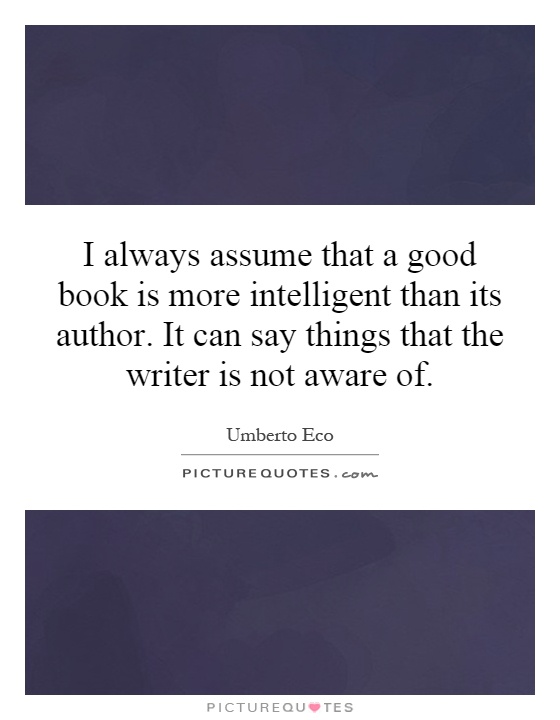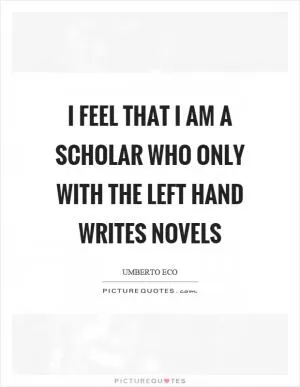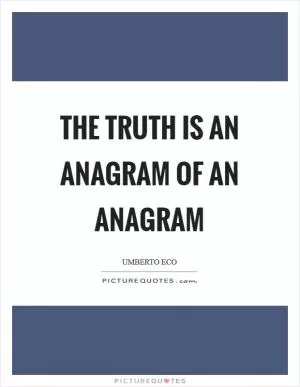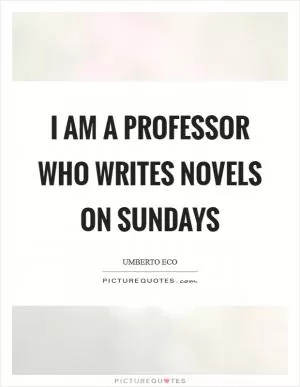I always assume that a good book is more intelligent than its author. It can say things that the writer is not aware of

I always assume that a good book is more intelligent than its author. It can say things that the writer is not aware of
Umberto Eco, the renowned Italian novelist, philosopher, and literary critic, is perhaps best known for his complex and intellectually stimulating works that challenge readers to think deeply about the world around them. Eco's novels, such as "The Name of the Rose" and "Foucault's Pendulum," are filled with intricate plots, historical references, and philosophical musings that have captivated readers for decades.One of the key themes that runs through Eco's work is the idea that a good book is more intelligent than its author. Eco himself once said, "I always assume that a good book is more intelligent than its author. It can say things that the writer is not aware of." This statement speaks to Eco's belief in the power of literature to transcend the limitations of the author's own knowledge and understanding.
In Eco's view, a truly great book has the ability to speak to readers on multiple levels, offering insights and perspectives that may not have been consciously intended by the author. This idea is reflected in Eco's own writing, which is filled with layers of meaning and symbolism that invite readers to delve deeper into the text and uncover hidden truths.
For Eco, the act of reading is a collaborative process between the author and the reader, with each bringing their own unique perspective and experiences to the text. In this way, a good book has the potential to spark new ideas, challenge preconceived notions, and inspire readers to think critically about the world around them.
Eco's belief in the intelligence of a good book also speaks to his reverence for the power of literature to shape and influence society. Throughout his career, Eco was a vocal advocate for the importance of reading and critical thinking, arguing that literature has the ability to expand our minds and open us up to new ways of seeing the world.












 Friendship Quotes
Friendship Quotes Love Quotes
Love Quotes Life Quotes
Life Quotes Funny Quotes
Funny Quotes Motivational Quotes
Motivational Quotes Inspirational Quotes
Inspirational Quotes